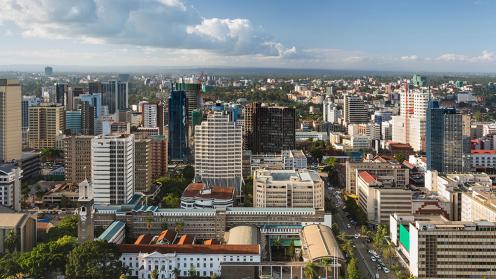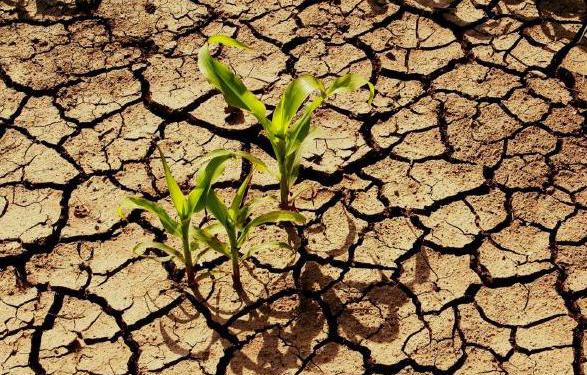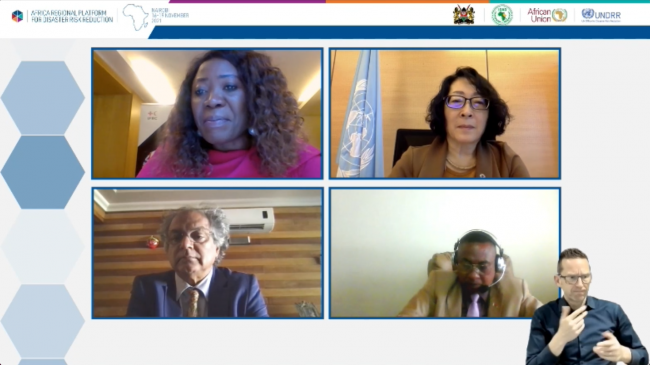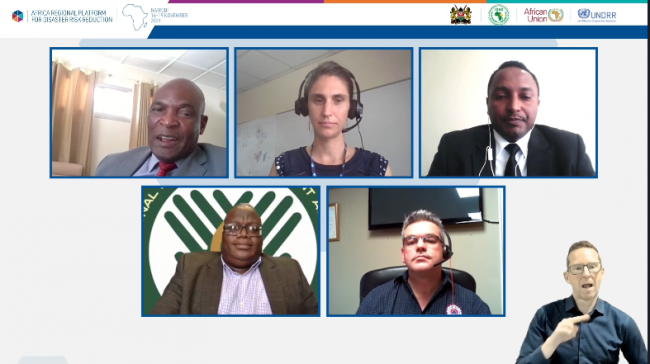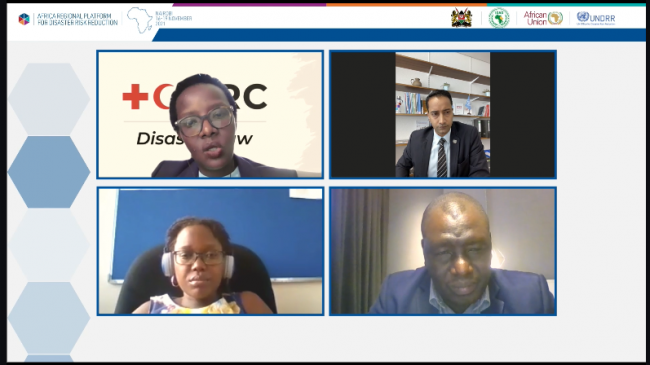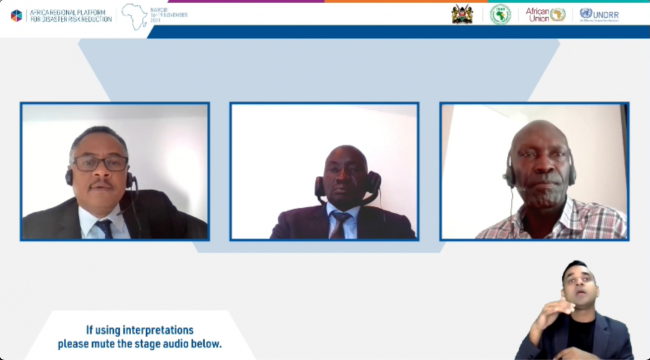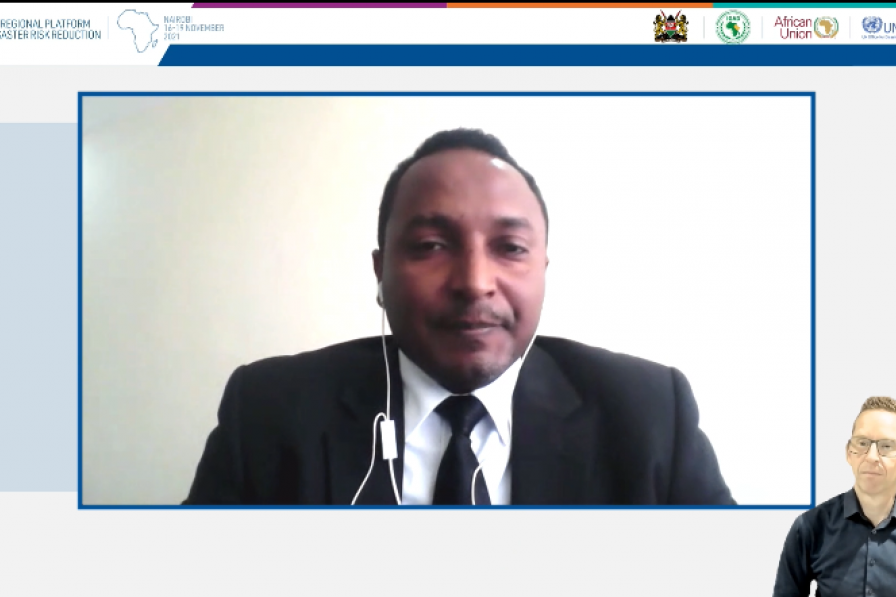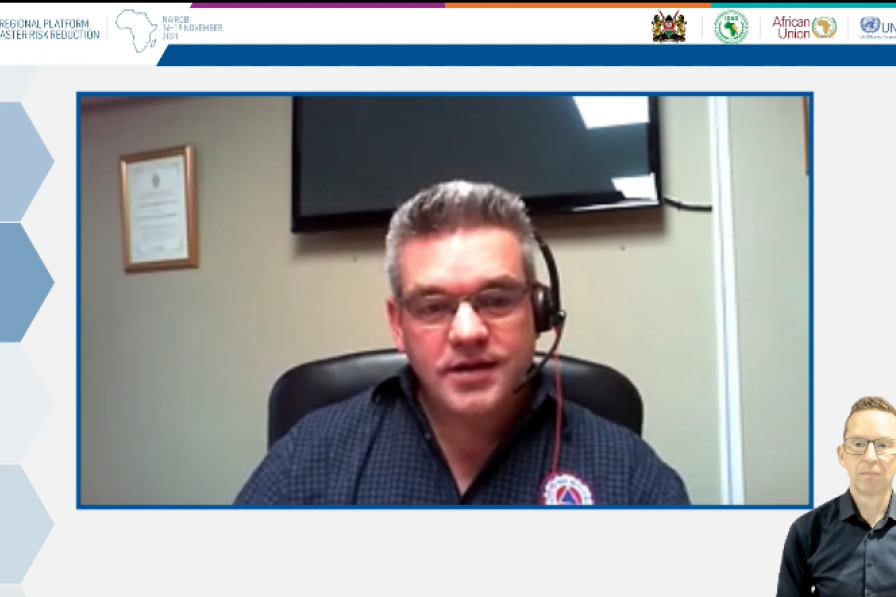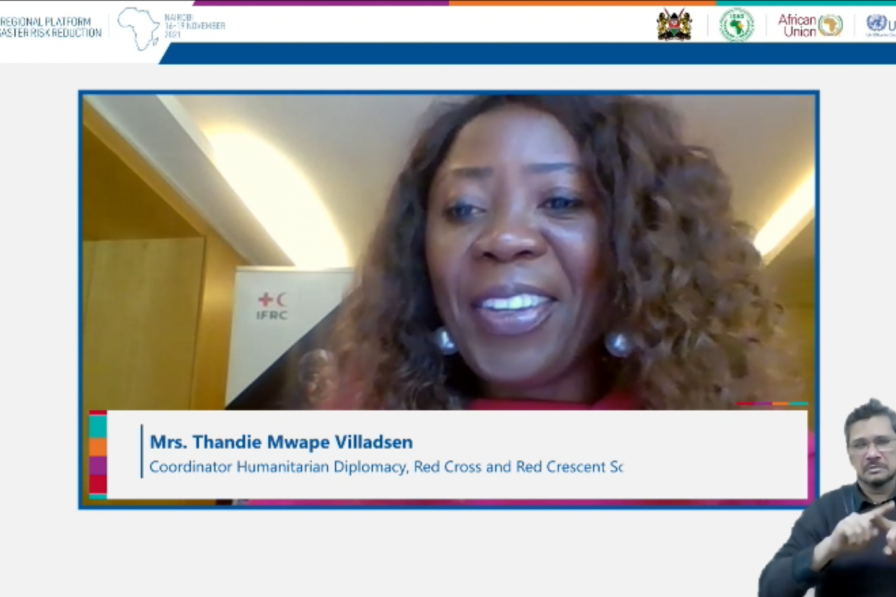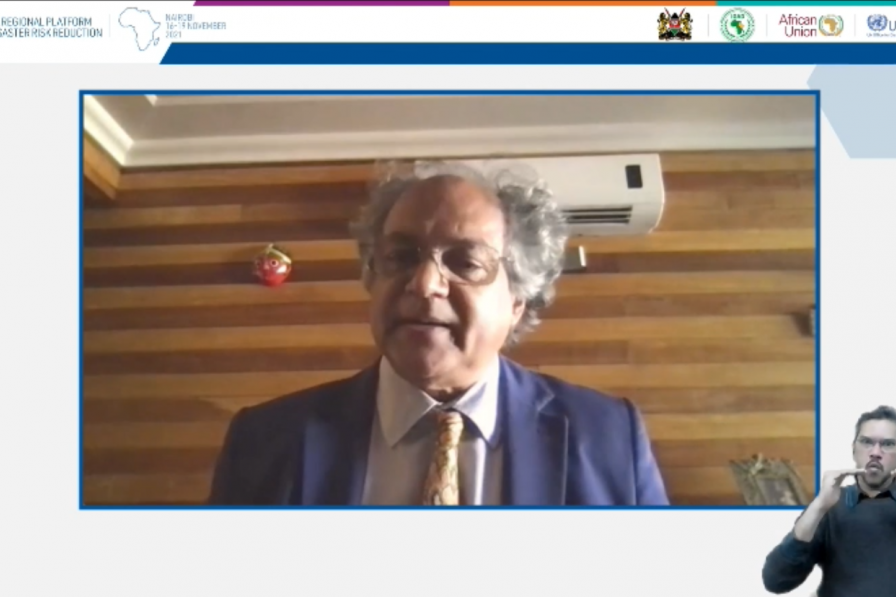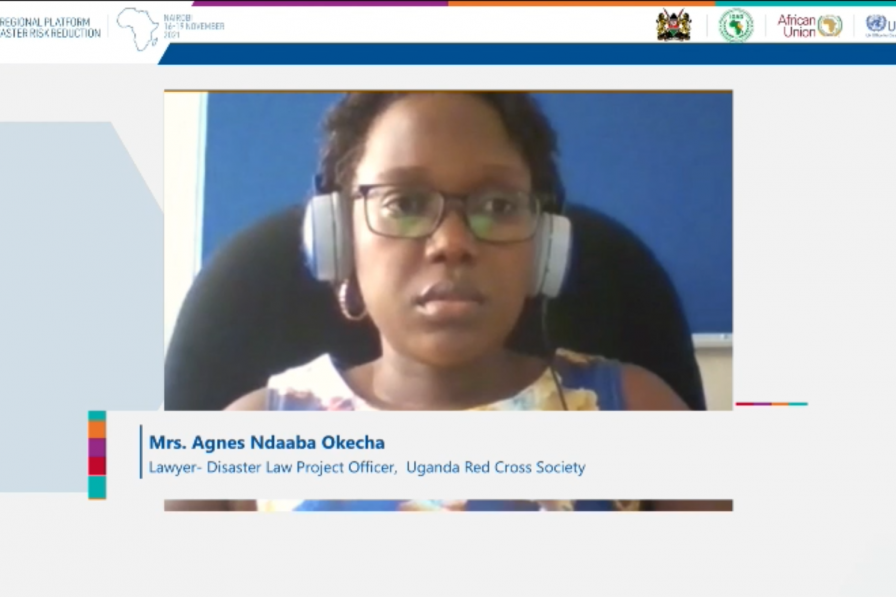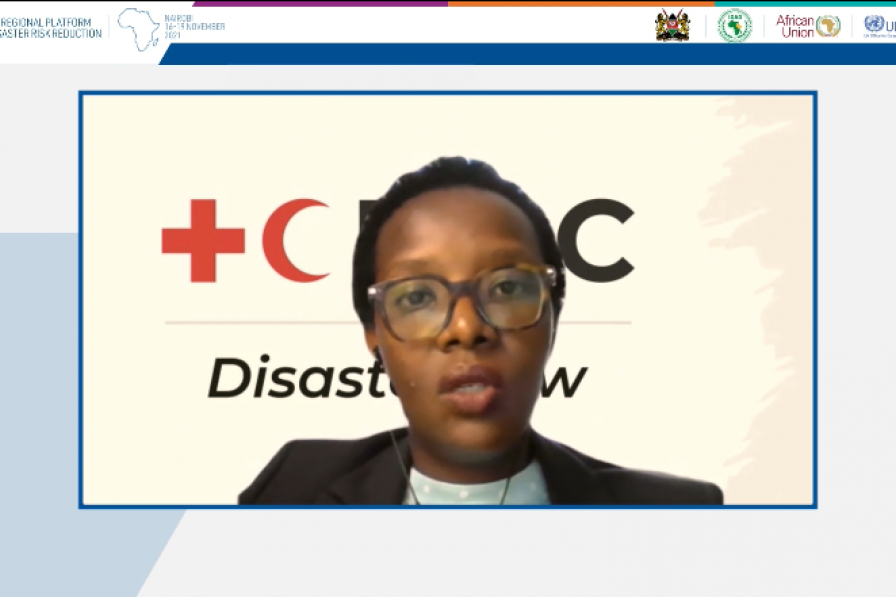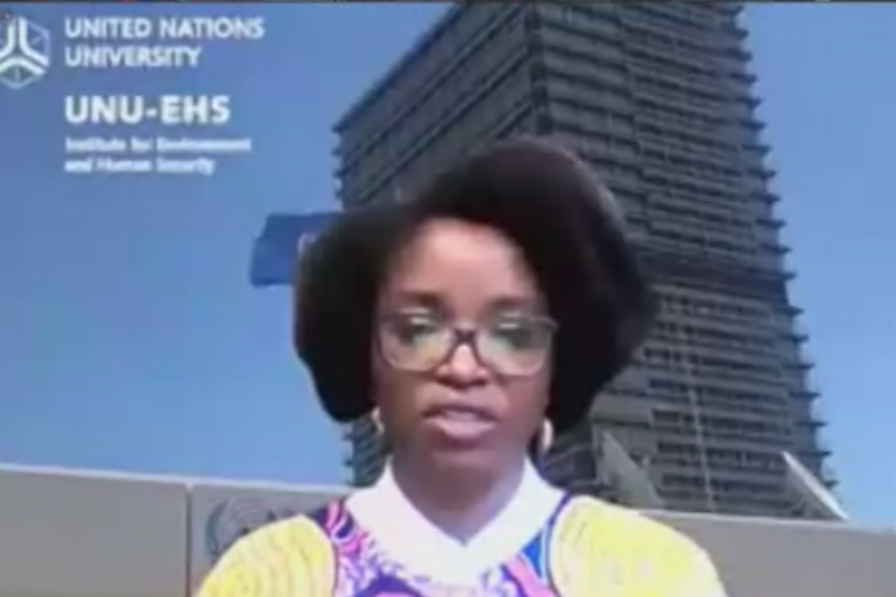On day three of the Eighth Africa Regional Platform for Disaster Risk Reduction, participants attended sessions on a variety of disaster risk reduction (DRR)-related topics, including on disaster risk governance, comprehensive disaster and climate risk management in Africa, financing and investment in DRR, and enhancing resilience at the local level. In the final plenary session of the day, the new Matrix of the Programme of Action for implementing the Sendai Framework, as well as the draft Nairobi declaration, were presented.
In the session on “Disaster Risk Governance in the Context of Systemic Risks and COVID-19,” moderator Thandie Mwape Villadsen, Coordinator Humanitarian Diplomacy, International Federation of Red Cross and Red Crescent Societies, stressed the increasing interconnectedness of our societies, which has led to increased system interdependency.
Mami Mizutori, Special Representative of the UN Secretary-General for Disaster Risk Reduction, United Nations Office for Disaster Risk Reduction (UNDRR), underscored the need to look closely at the three elements that make up a disaster: hazard; exposure; and vulnerability. She called for interconnected, systemic solutions under a comprehensive, coordinated, whole of society and government approach.
Vêlayoudom Marimoutou, Secretary General, Indian Ocean Commission (IOC), stressed the need for a multi-level approach and global action based on solidarity to face global challenges and systemic risk. Elack Olivier Andriakaja, Général de Brigade, Director General, National Bureau for Risk and Disaster Management, Madagascar, shared insights from disaster risk management (DRM) efforts in Madagascar. He described roles and responsibilities of different national institutions at the strategic and operational levels, and highlighted partnerships with different UN organizations, non-governmental organizations, and the private sector.
Bilubi Ulengabo Méschac, Mayor of Bukavu, Democratic Republic of the Congo, provided an overview of DRR in the context of COVID-19 and the eruption of the Nyiragongo volcano. Elaborating on a holistic management system to reduce risk, he identified the transdisciplinary office for mapping DRR, and an early warning and communication system.
In the session on “Improved Understanding and Management of Disaster Risk in Africa,” speakers outlined the challenges and opportunities of DRM in Africa, highlighting the need for adequate and understandable data, as well as risk assessments and analyses. Gemma Connell, UN Office for the Coordination of Humanitarian Affairs (UNOCHA), underscored the need for publicly available data to enable emergency preparedness and response. She noted the establishment of the Centre for Humanitarian Data to pull together all publicly available data into one repository.
The session on “Comprehensive Disaster and Climate Risk Management in Africa” focused on main elements for a comprehensive climate and DRM approach. Key messages included the need for: strong governance systems that clarify the roles and responsibilities of different actors; DRR policies linked to sustainable development policies; and data collection and analysis to track progress on disaster and climate risk. Animesh Kumar, Head of Office, UNDRR, Bonn, Germany, highlighted the main elements of a comprehensive climate and DRM approach, including analysis, planning, and financing.
During the session on “Enhancing Resilience at the Local Level,” Kai Gatkuoth, African Union Commission (AUC), reflected on opportunities for empowering government systems at the local level. He advocated building on local governance and solutions, and called for “decolonizing global hostility toward indigenous knowledge systems.”
The session on “Financing and Investment in DRR” focused on how to increase investment in DRR in Africa, with participants discussing, inter alia, barriers to accessing financing for Africa. Cecil Nartey, Coordinator, Africa Disaster Risks Financing (ADRiFi) Programme, African Development Bank, said the ADRiFi Programme works with countries to ensure a proactive approach to DRR, by focusing on two key areas: capacity building and financing.
In the final plenary session, Kai Gatkuoth presented the new Matrix of the Programme of Action for Implementation of the Sendai Framework for DRR in Africa, covering phase II of the Programme of Action, from 2021-2025. He explained that key activities in the Matrix aim to ensure vertical integration among different levels, including AU Member States, Regional Economic Communities (RECs), the AUC, and UN organizations. He also urged Member States and RECs to internalize the new Matrix and ensure that new or revised DRR strategies and frameworks align with the Matrix. Subsequently, Charles Owino, National Disaster Operations Centre, Kenya, presented the draft Nairobi declaration, which will be discussed and adopted at the Seventh High-Level Meeting on DRR taking place on Friday, 19 November.
To receive free coverage of global environmental events delivered to your inbox, subscribe to the ENB Update newsletter.
